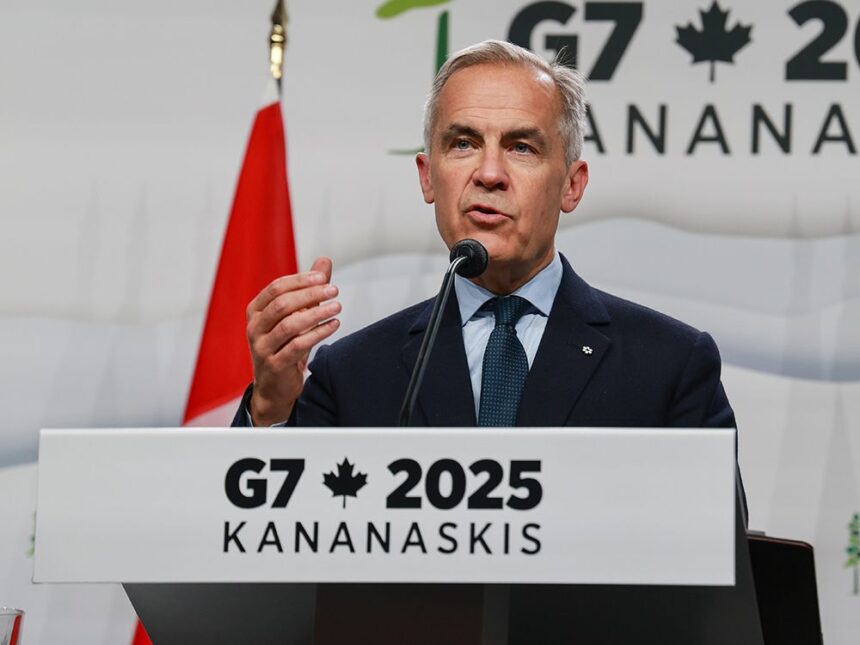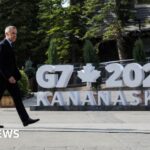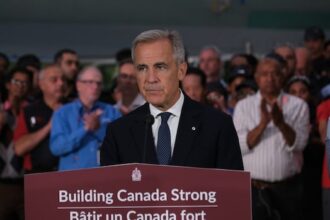The frosty diplomatic standoff between Canada and India appears to be thawing, according to former Bank of Canada governor Mark Carney, who suggested a path to normalized relations is emerging after months of escalating tensions. Speaking on the sidelines of the G7 summit in Italy, Carney indicated that Prime Minister Justin Trudeau’s government is actively working toward rekindling diplomatic ties with New Delhi, potentially ending one of Canada’s most challenging international relationships in recent memory.
“There’s a process underway to restore those relations,” Carney told reporters at the summit, where he participated as chair of the Glasgow Financial Alliance for Net Zero. “It’s best that I not comment on the specific elements of that process, but there is a process.”
This potential diplomatic breakthrough comes after relations between the two nations deteriorated dramatically last September when Trudeau made explosive allegations in Parliament linking Indian government agents to the assassination of Sikh separatist Hardeep Singh Nijjar on Canadian soil. The 45-year-old Nijjar, who advocated for an independent Sikh homeland called Khalistan, was gunned down outside a Sikh temple in Surrey, British Columbia.
India vehemently denied these allegations, dismissing them as “absurd” and “politically motivated.” The diplomatic fallout was swift and severe. India expelled six Canadian diplomats, including Canada’s high commissioner to India, while demanding Canada reduce its diplomatic presence in the country. Ottawa responded by recalling its top diplomats from New Delhi.
The relationship further deteriorated as India suspended visa services for Canadians and demanded diplomatic parity, forcing Canada to withdraw 41 diplomats from India. Trade talks were halted, and a planned trade mission to India was canceled.
For Canada, the stakes of this diplomatic crisis extend far beyond political posturing. India represents a crucial economic partner as Canada’s 10th largest trading partner, with bilateral trade reaching approximately $13.7 billion in 2022. Moreover, India’s strategic importance in the Indo-Pacific region makes it an essential ally for Canada’s foreign policy objectives.
Despite the ongoing investigation into Nijjar’s murder, which has reportedly involved Canada’s intelligence agencies gathering electronic evidence potentially linking Indian diplomats to the killing, both countries appear ready to chart a new course.
“We’re always open to resolving this situation,” Trudeau stated recently when asked about India relations at a separate news conference. “We need to see a commitment to ensuring that the rule of law is upheld, and that countries like Canada can and will defend the rule of law.”
Indian officials have also signaled openness to dialogue, though they maintain their rejection of Canada’s allegations. The Indian government has consistently characterized the dispute as stemming from what it views as Canada’s permissive attitude toward Sikh separatism.
Political analysts suggest the timing of this potential rapprochement is not coincidental. With Canada facing economic challenges and India cementing its position as a global power under Prime Minister Narendra Modi’s recently secured third term, both nations have practical incentives to resolve their differences.
For the approximately 1.4 million Canadians of Indian descent, many of whom maintain close ties to relatives in India, the diplomatic crisis has created practical hardships, from visa complications to interrupted business ventures. Community leaders across Canada have been calling for a resolution that addresses security concerns while restoring normal relations.
As the world watches this diplomatic dance unfold, the question remains: Can these two democracies find common ground while still addressing the serious allegations that triggered the crisis in the first place, or will pragmatic economic interests ultimately override concerns about sovereignty and security?










